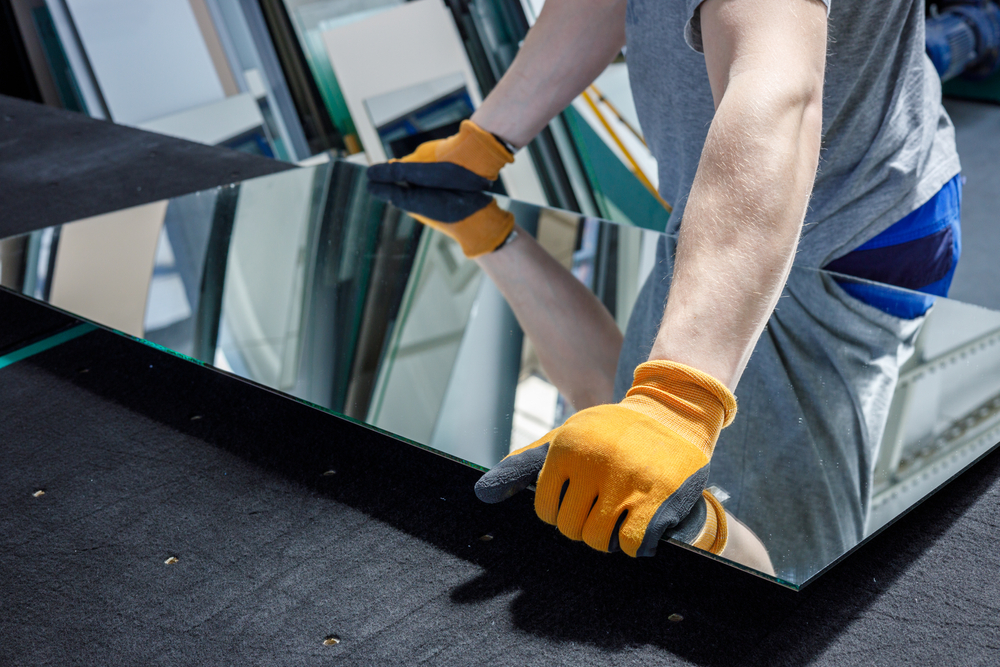
When Should You Replace a Window Pane Instead of the Entire Window?
July 20, 2025 5:01 pm Leave your thoughtsWindows are essential elements of any home, contributing not only to its aesthetics but also to its energy efficiency, security, and comfort. Over time, however, windows can suffer from damage or deterioration. When faced with a broken, cracked, or foggy window, homeowners are often caught in a common dilemma: should they replace the window pane or the whole window? Understanding the factors that influence this decision can help you make a smart investment in your home’s longevity and value.
What’s the Difference Between Replacing a Window Pane and the Whole Window?
Before deciding whether to replace the window pane or the entire window, it’s important to clarify what each option entails. A window pane refers specifically to the glass component of the window. Replacing a window pane means removing the damaged glass and installing a new pane within the existing frame. This is often done when the window frame itself is still structurally sound and functional.
On the other hand, replacing the entire window involves removing the entire unit—including the frame, sash, and glass—and installing a new window system. This process is more extensive and typically more expensive. However, it also addresses problems like frame warping, rot, poor insulation, and outdated styles that might not be resolved by simply replacing the glass.
Knowing whether your problem lies solely in the glass or extends to the frame and other structural elements is crucial when deciding between cracked window pane repair and full window replacement.
When a Cracked Window Pane Repair is the Right Choice
In many cases, replacing just the window pane makes the most practical and cost-effective sense. If your window frames are in good shape but you’re dealing with cracked or shattered glass, then opting for a cracked window pane repair is usually the best route. Modern glazing technology allows professionals to swap out individual panes without disturbing the surrounding structure, preserving your home’s appearance and minimizing costs.
For instance, single-pane windows, which are still common in older homes, can often be repaired quickly and affordably by simply replacing the broken pane. Double- or triple-pane windows can also sometimes be repaired if the damage is confined to one layer of glass and the seals remain intact. In cases where the seal has failed and condensation appears between panes, it may still be possible to replace only the insulated glass unit (IGU) without replacing the entire frame.
Another scenario where cracked window pane repair makes sense is when the damage is cosmetic or limited to surface scratches or small cracks that do not affect the window’s integrity. In such cases, specialty glass repair services may be able to restore the pane without a full replacement.
Choosing to replace the window pane instead of the whole window is also ideal for homeowners aiming to preserve historic window frames, as full replacements could compromise the architectural authenticity of the property.
When You Should Replace the Whole Window
While replacing just the glass might be sufficient in some cases, there are situations where it’s advisable—or even necessary—to replace the entire window. If your window frames are damaged, warped, rotting, or otherwise compromised, repairing only the glass would be like applying a band-aid to a structural problem. Frames that are soft to the touch, show signs of moisture damage, or no longer open and close properly typically signal the need for full window replacement.
Additionally, if your existing windows are outdated and energy-inefficient, opting to replace the whole window can lead to long-term savings on heating and cooling costs. Modern windows come with advanced features like low-emissivity coatings, argon gas fillings, and thermally broken frames, all of which help improve insulation and reduce energy consumption. In this context, replacing window panes in outdated frames might not provide the benefits you need.
Condensation or fogging between the panes of double- or triple-pane windows often indicates seal failure. While the insulated glass unit (IGU) alone can sometimes be replaced, if your window frames are nearing the end of their lifespan, it makes sense to invest in a full window replacement to avoid recurring problems.
Moreover, homeowners seeking to update the look of their home—whether for aesthetic reasons or to increase resale value—might prefer the clean slate offered by full window replacement. This allows for the installation of windows in different styles, colors, or materials, enhancing both curb appeal and functionality.
Cost Considerations: Comparing Replacing a Window Pane vs. Whole Window Replacement
Budget is understandably a major consideration when choosing between replacing a window pane or the whole window. Generally, replacing just the window pane is significantly cheaper than full window replacement. Simple pane replacements may cost as little as $50 to $150 per window, depending on the type and size of the glass. Cracked window pane repair is a localized solution that spares you the additional labor and material costs associated with full replacement.
However, if multiple panes are broken or your existing windows are inefficient, outdated, or structurally compromised, the long-term benefits of full replacement can outweigh the initial expense. Full window replacement typically ranges from $300 to $1,200 per window, depending on factors such as window size, frame material, glazing options, and installation complexity.
It’s also important to consider potential energy savings. New windows can drastically improve thermal efficiency, potentially lowering your energy bills by up to 15% or more annually. Over time, these savings can help offset the higher upfront costs of full window replacement.
For those working with limited budgets, prioritizing the most damaged windows for full replacement while opting for pane repairs elsewhere can be a balanced approach.
Making the Right Choice: Factors to Evaluate Before Deciding
In deciding whether to replace the window pane or whole window, several factors should be carefully assessed. Start with a thorough inspection of the window frames. If they are sturdy and in good condition, replacing the pane may suffice. Conversely, if there are signs of moisture infiltration, rot, or warping, full window replacement is often the wiser choice.
Consider your home’s energy efficiency. If you’re experiencing drafts or escalating energy costs, investing in modern windows could improve your home’s thermal performance significantly. Likewise, the age of your windows plays a role; windows over 20 years old may lack modern glazing technologies, making replacement more attractive.
Aesthetic preferences and property value should also guide your decision. New windows can provide a fresh, cohesive look to your home’s exterior, whereas replacing only panes retains the existing appearance.
Conclusion
Ultimately, consulting with a professional window contractor is advisable. They can assess your specific situation, evaluate the condition of your windows, and recommend the best course of action. Whether you’re dealing with cracked glass or entire units past their prime, understanding the distinction between cracked window pane repair and full replacement ensures that your investment enhances your home’s comfort, efficiency, and appeal for years to come.
Need Glass Repair Services Near You?
If you’re in need of expert glass repair or installation, we’d love to help! At S & S Glass Co., we take pride in delivering top-quality service with a personal touch that only a locally owned business can offer. Whether it’s custom shower doors, replacement windows, or insulated glass unit repair, our experienced team is ready to handle your residential or commercial needs. Reach out to us today for a free estimate—we’re here to make your project seamless and stress-free. Don’t forget to ask about our military discount!
Categorised in: Window Repair
This post was written by admin
